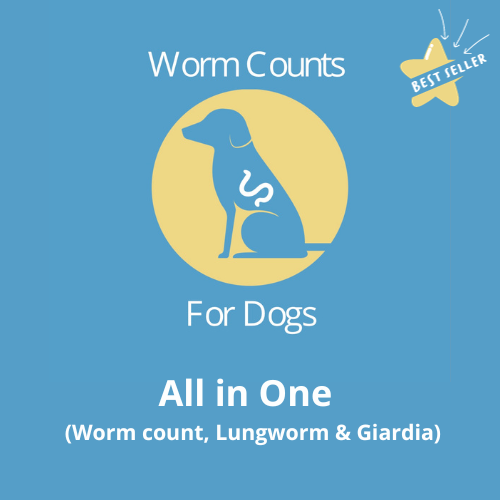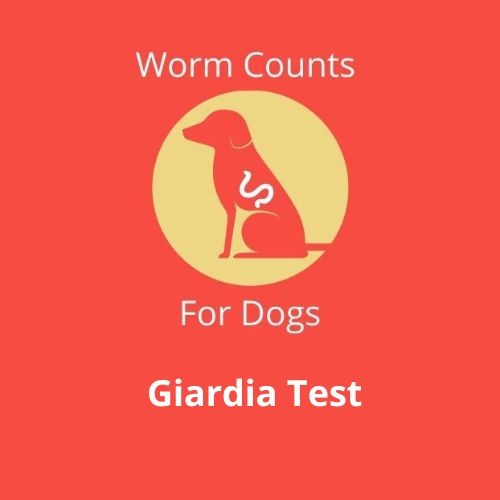Don't rely on furry rabbit ears as a natural wormer for your dog, they don’t kill worms, and the fur won’t prevent them in the first place, either. Here’s why.
Sorry to be the bearer of bad news, but we don’t want you to assume furry rabbit ear dog chews will deworm your dog because they won’t. Furry rabbit ears are reported to ‘scour’ your dog’s gut, detaching worms from the gut wall, and sweeping them through the intestine and out the other end when your dog has a poo. Yet I can’t find one scientific piece of research to support this, nor any solid anecdotal evidence from a holistic vet or anywhere else. The only veterinary opinion, conventional or holistic, I can find is that rabbit ears are not a natural wormer.
And scientific or excellent anecdotal evidence (going back years) is what I want to see in something so serious as worms. Giving your dog a veterinary or natural wormer – we like Verm-X – and worm counting regularly is the only responsible way to go.
Let me explain.
Fur gets wet!
First, any fur your dog ingests will be wet from saliva and stomach juices, so it can’t effectively brush through your dog's gut and remove any worms.
Your dog has stellar stomach acid.
Additionally, dogs have a much higher level of stomach acid than humans do, strong enough to break down bones. When food enters the stomach, acid and enzymes get to work, digesting the food and passing it on to the small intestine to be broken down further. Rabbit fur is no match for this level of acidity.
Worms thrive in your dog’s gut.
Tapeworms and hookworms, for example, latch onto your dog’s gut wall in the small intestine and grow by eating whatever passes by. When the rabbit ear reaches the small intestine, there is minimal, if any, fur left. The food breaks down, and the body absorbs the nutrition to be distributed where needed.
The worms, lodged firmly, can stay on indefinitely, releasing millions of eggs which pass through the small, then large, intestine and into the outside world when your dog has a poo. You need to get up early to catch a tapeworm out!
Test for worms
An IMPORTANT note about lungworm.
Lungworm larvae enter through the mouth and stomach, migrate through your dog’s gut wall, and into the bloodstream. They move to the heart, maturing into adults along the way, and then release millions of eggs, which break through the lung wall and make their way up. Your dog coughs them up, swallows them and passes them out. NEVER rely on a furry rabbit ear to kill lungworm. If your dog tests positive for lungworm, or you suspect it, the only way to get rid of it properly is with a veterinary lungworm treatment. Any holistic vet will tell you the same.
Test for lungworm
Rabbit ears do have their advantages.
Rabbit is a novel protein.
Rabbit is known as a novel protein, meaning it’s not usually something you’ll find in pet food and is possibly better tolerated by sensitive dogs. Commercial dog food recipes primarily use chicken, beef, and lamb as their primary protein source. So, if your dog has a sensitive stomach, try rabbit and see how they go.
Giving your dog a rabbit ear, with or without fur, is a high protein treat but also relatively high in fat, so consider them in your dog’s daily ration rather than feeding as an add-on. Think cake after dinner for us.
Rabbit ears are a good chew.
If your dog tolerates rabbit ears, furry or otherwise, they are brilliant as a healthy dog chew. Chewing is a dog’s version of a glass of wine! It has a calming and destressing effect on a dog. And a rabbit ear, sourced from a good supplier – the UK or EU, not China – will do wonders to chill them out.
Do a worm count as part of your worming routine.
If you suspect worms or want to check for them, do a worm count test for your dog. Especially if you don't worm them or only wish to do so if they’re present or to check if your dog wormer is working, buy one of our worm count or lungworm kits, or better still, our All-in-One kit to test for worms, lungworms and giardia.
Our kits are simple to use and come with obvious instructions of how to do one: in written, picture and video form, use whichever works for you.
Collect a sample of your dog's poo and put it in the pot(s) provided. Then, please fill out your details and post them to the lab in the prepaid, tracked envelope provided in the kit. We use FECLAB to test the sample(s) for worms, including tapeworms, roundworms, hookworms, whipworms, lungworms, and giardia (in the worm count test). We have separate kits if you only want to test for lungworm or giardia. You'll receive your results twenty-four to forty-eight hours after your sample arrives at the lab.
Test your dog for worms with a worm count and worm your dog if you want to, but don’t rely on feeding your dog a furry rabbit ear to do such a serious job. They are not a natural dog wormer or deterrent.
Buy a test.
Note: A Faecal egg count is a snapshot of a specific moment in time. The test detects eggs of mature parasites that live inside the body and pass their eggs to the outside by shedding them into the dogs' stool. At the time of testing, the parasites may be too young to produce eggs. If no eggs are being shed, the infection cannot be detected. There is also a possibility that the eggs are in such small numbers at the time of testing that they would be undetectable, thus showing a negative result. The above is extremely rare, but we want to highlight the possibilities.
Intestinal Health Supplements
We now stock Verm-X intestinal health supplements for dogs. Verm-X products are 100% natural and can be used all year round to manage gut hygiene in dogs.







1 comment
Thank you for this information and the myth about furry rabbit ears!!